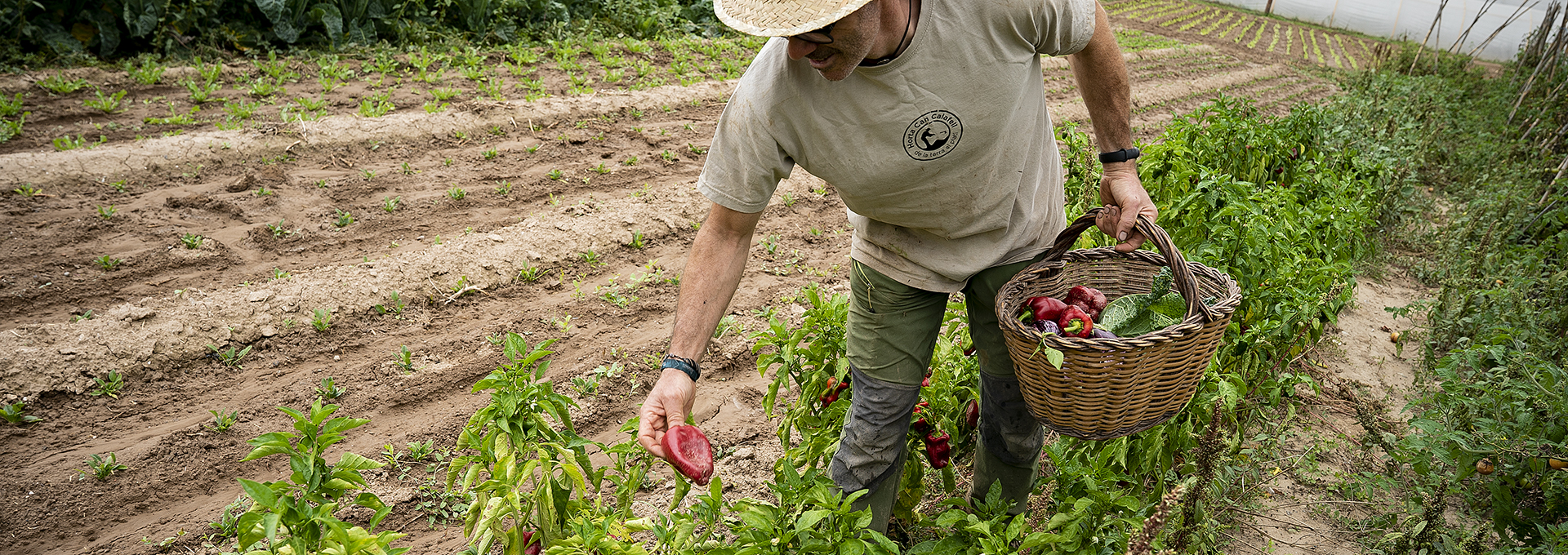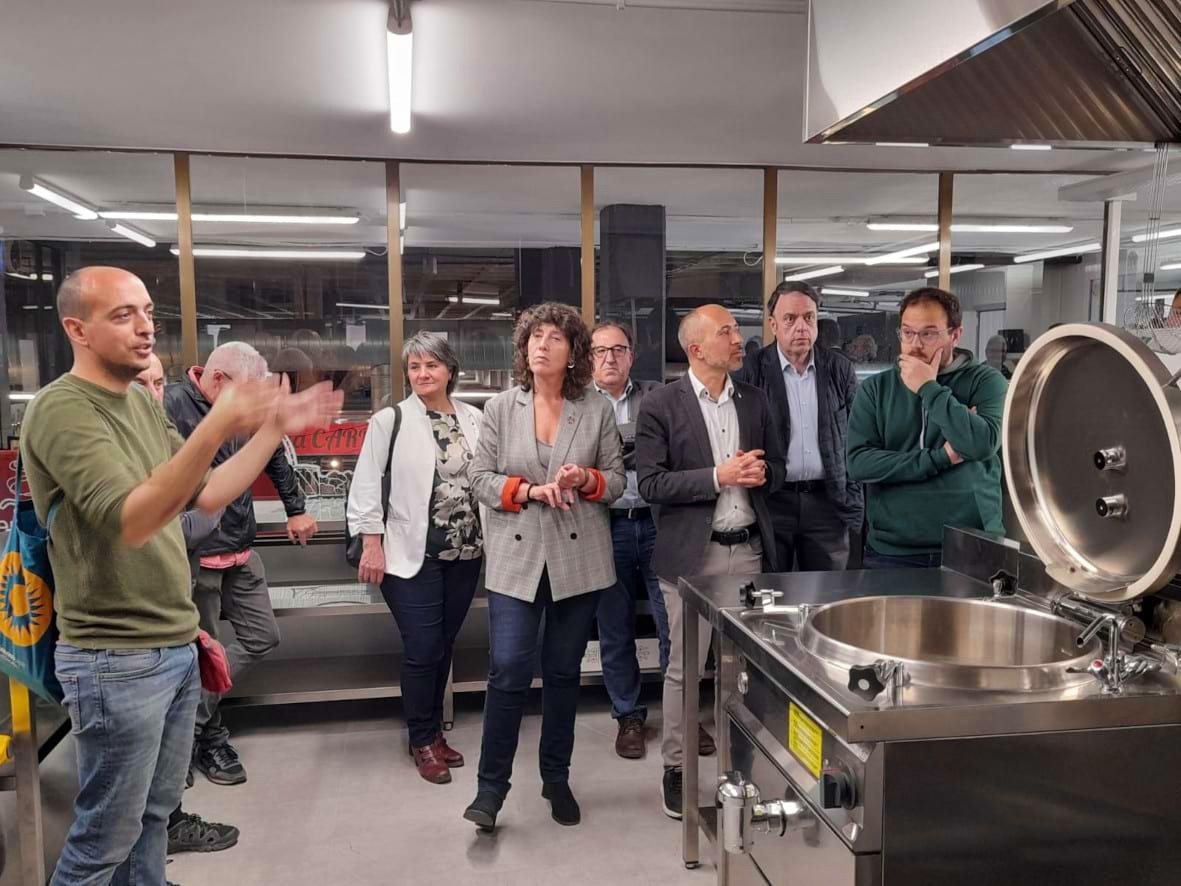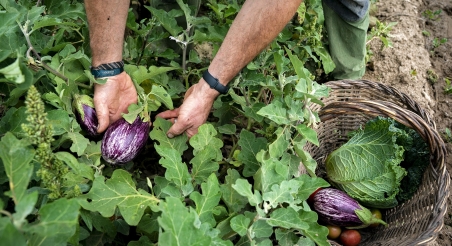In the heart of Central Catalonia, the Bages region has taken an important step in promoting healthy, sustainable, and safe food production with the opening of the first shared vegetable processing facility in the area.
The inauguration took place on Thursday, 30th March, at the new facility located at Puigmercadal Market in Manresa. The event was attended by Teresa Jordà, the Minister for Climate Action, Food, and Rural Agenda of the Generalitat de Catalunya; Marc Aloy, the Mayor of Manresa; and Valentí Junyent, Deputy for Mobility, Natural Spaces, and Forest Fire Prevention at the Barcelona Provincial Council. Other attendees included Pol Huguet, the Councillor for Green City at Manresa Town Hall; Albert Puigvert, Manager of the Catalan Rural Initiatives Association (ARCA); Pere Calafell and Jordi Morera, members of the board of L'Obradora, the cooperative managing the agro-food space, as well as other representatives from the Manresa City Council.
During the tour of the facility, attendees were introduced to the products and preserves that will be produced there, and they also had the chance to speak with those driving the project. The first few weeks of operation are being used to test different food processing techniques, and by June—when the Manresa vegetable gardens are at their peak—the facility is expected to be running at full capacity.
Supportive remarks
In her address, Minister Jordà emphasised the importance of the project: "The role of this shared processing facility is crucial. It is a real tool for rural transformation and a clear example of the shift towards environmentally sustainable, economically viable, and socially just production models." She also assured continued support for projects committed to rural areas and the people who live and work there, considering the land a shared heritage for all.
Mayor Marc Aloy highlighted that this facility aligns with Manresa City Council's goal of enhancing the Anella Verda (Green Ring) and the city's vegetable gardens. He described the project as an example of networked collaboration, "bringing together the necessary alliances to make it possible." Aloy also underlined that the facility is part of a broader effort to "combat the ageing and depopulation of the agricultural sector."
Valentí Junyent, representing the Barcelona Provincial Council, explained that "first by managing FEDER funds and then with our own resources, we have supported nine shared processing facilities and low-capacity slaughterhouses because these agro-food transformation infrastructures are essential for advancing towards healthier and more sustainable food systems." Junyent stressed the key role shared facilities play in rural development, enabling local families to bring their artisan products to market.
The result of collective effort
Located in a central part of the main fresh food market in Bages' capital, the shared vegetable processing facility covers an area of 154 m². Fully equipped with a kitchen and oven, the facility boasts a wide variety of modern equipment aimed at transforming the abundance of vegetables grown in Manresa into delicious broths, preserves, and other culinary delights. Among the tools available are temperature control devices for uniform heating, an autoclave for sterilising preserves, a cold room for cutting vegetables, refrigerated storage, and various utensils for packaging, slicing, and peeling.
With an investment of €185,000, the facility was made possible through collaboration between the municipalities of Manresa, Artés, and Navàs, who spearheaded the Central Catalonia Food Sovereignty Network (XaSACC) to develop and promote local agricultural products. Funding came from several institutions aligned with this vision, including €103,000 from Manresa Town Hall, €62,000 from ARCA (with €31,000 subsidised by the Barcelona Provincial Council and another €31,000 from FEDER), and an additional €20,000 from the Barcelona Provincial Council. The technical support provided by the three entities and XaSACC was also key to the project’s success.
A space for new opportunities
The shared vegetable processing facility aims to boost the local economy by promoting agroecological production and supporting short supply chains. It also seeks to create new employment opportunities for people interested in joining the agricultural sector, while offering current producers a platform to process surplus from their farms and plan new crops specifically for processing. Moreover, the facility hopes to strengthen ties between producers, processors, and consumers, creating networks among local farmers and developing innovative products that meet today’s market demands.
L’Obradora, the cooperative managing the shared facility, was founded by several farmers from Central Catalonia with the common goal of transforming the produce from their land. In its initial phase, the cooperative plans to process vegetable surpluses and create preserves and fourth-range products under the L’Obradora brand, ensuring all products are made with ingredients sourced directly from local farmers.
Currently, L’Obradora comprises ten producers: Casa Torras, Ecopallareta, Frecoop, l'Hort del Navarro, Horta Can Calafell, Les Arnaules, Mas Rossinyol, Niuverd, Peixos Agustí and Sambucus.
The origins of the project
The seeds of the shared processing facility were planted in 2018, when the Green City department of Manresa Town Hall began to envision this inspiring project. Over time, alliances were forged with other institutions, and after discussions with local farmers, the potential of this infrastructure to transform the food system in Central Catalonia was confirmed. The project was partly driven by the BCN Smart Rural strategy, co-financed by the Barcelona Provincial Council and FEDER funds from the European Union. The member municipalities of XaSACC and the Central Catalonia Cooperative Athenaeum also played a crucial role in making this vision a reality. Local farmers were actively involved in defining the facility's needs during a participatory process in 2020.
A supra-municipal shared facility
With the inauguration of the first shared vegetable processing facility in Central Catalonia, the Barcelona Provincial Council has taken a significant step towards promoting a healthier, local, and fairer food system. This new infrastructure serves as a support tool to promote the work of small farmers, ensuring the economic viability of their businesses and boosting the marketing of high-quality local food. It also encourages healthy and environmentally responsible consumption habits, based on proximity and the sustainable use of resources. This project is expected to serve as a model and source of inspiration for other municipalities, institutions, and organisations looking to drive the transition towards more sustainable and secure food systems.
For more information on the shared food processing facilities promoted by the Barcelona Provincial Council, please contact Sònia Callau, head of the Agricultural Territorial Directorate of Barcelona Provincial Council and coordinator of the BCN Smart Rural strategy.
— BCN Smart Rural Editorial —




